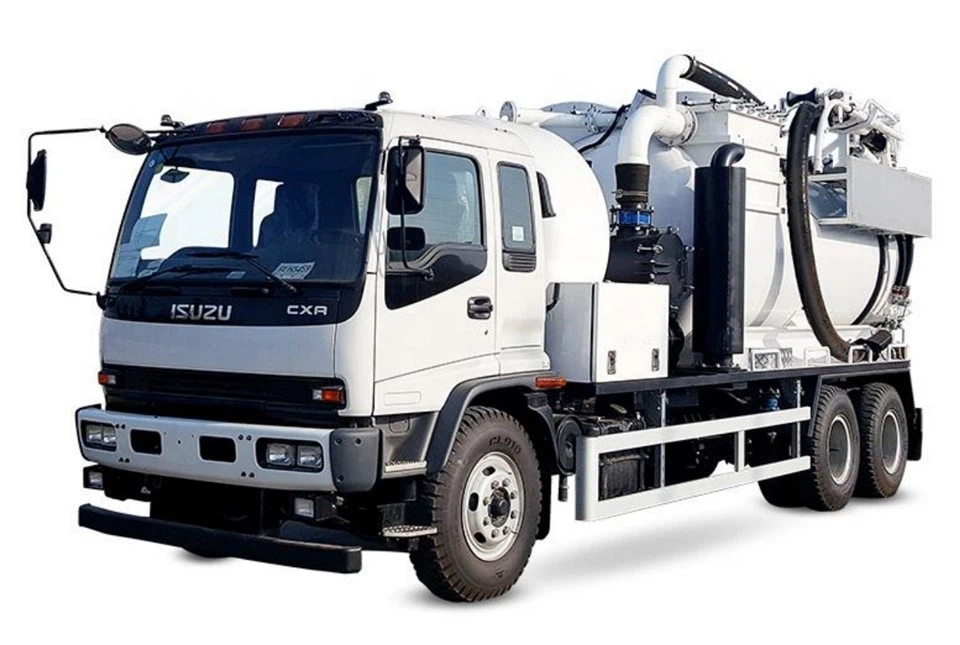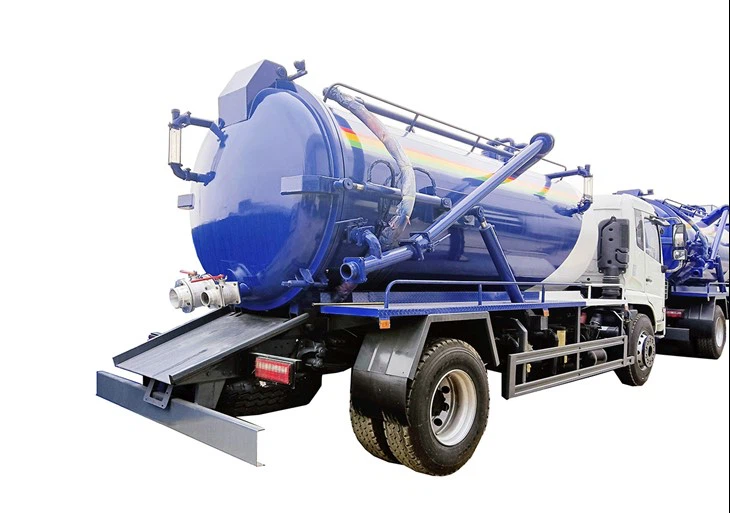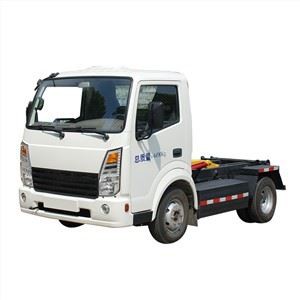Introduction
In an era where sustainability and environmental responsibility are paramount, small garbage trucks have emerged as essential tools for cities and municipalities. They are designed to navigate tighter spaces, making them ideal for urban environments, narrow streets, and residential areas. This article explores various aspects of small garbage trucks, including their types, benefits, operational considerations, and FAQs. With our comprehensive guide, you will be well-equipped to understand the significance of small garbage trucks in waste management.
What are Small Garbage Trucks?
Small garbage trucks, often referred to as compact garbage trucks, are specially designed vehicles that offer efficient waste collection services in areas that are challenging for larger trucks to access. Typically equipped with advanced features, these trucks are smaller in size yet highly effective at collecting waste.
Types of Small Garbage Trucks
There are several variations of small garbage trucks catering to different needs:
- Rear Loader: Features a mechanism in the back for waste collection, suitable for residential garbage.
- Side Loader: Allows for the collection of waste from the side of the truck, often used in areas with limited access.
- Automated Garbage Trucks: Equipped with automated arms for easy collection of bins, promoting efficiency.
Benefits of Using Small Garbage Trucks
Small garbage trucks offer several advantages, making them an attractive option for waste management in urban areas.
Space Efficiency
These trucks are designed to fit into smaller spaces, allowing them to navigate narrow streets and alleys, thereby enhancing collection efficiency and minimizing disruption.
Cost-Effectiveness
Small garbage trucks often have lower operational costs compared to their larger counterparts. This is attributed to reduced fuel consumption and maintenance expenses.
Environmental Impact
With the increase in the number of compact garbage trucks, cities can optimize routes, reducing fuel emissions and contributing to environmentally-friendly waste management practices.
Operational Considerations for Small Garbage Trucks
When integrating small garbage trucks into a waste management system, various operational aspects should be assessed.
Route Optimization
Utilizing GPS technology and software for route optimization can significantly enhance operational efficiency, ensuring trucks take the most effective paths while minimizing fuel consumption.
Staff Training
Proper training for operators and crew members is essential to maximize the performance of small garbage trucks. Ensuring staff are well-versed in safety protocols and operational procedures is of utmost importance.
Maintenance Schedules
Regular maintenance is crucial for the longevity of small garbage trucks. A well-planned maintenance schedule will help in identifying issues early and keeping the trucks in optimal condition.
Comparison of Small Garbage Trucks vs. Large Garbage Trucks
| Feature | Small Garbage Trucks | Large Garbage Trucks |
|---|---|---|
| Size | Compact and agile | Large and robust |
| Cost | Lower operational costs | Higher operational costs |
| Fuel Efficiency | More fuel-efficient | Less fuel-efficient |
| Access | Better for narrow streets | Limited access |
| Capacity | Lower waste capacity | Higher waste capacity |
Choosing the Right Small Garbage Truck
When selecting a small garbage truck, it’s essential to assess several key factors to ensure optimal performance and safety.
Capacity Needs

Understand the volume of waste generated in your area and choose a truck that can accommodate those needs while allowing for efficient operations.
Features and Technology
Look for modern features like automated arms, onboard weighing systems, and GPS tracking to enhance functionality.
Budget Constraints
Establish a realistic budget that considers initial purchase costs, maintenance, and operational expenses over time.
Practical Tips for Operating Small Garbage Trucks
Tip 1: Regularly Update Route Plans
Review and adjust routes periodically based on changing traffic patterns and waste generation rates to ensure efficiency.
Tip 2: Leverage Technology
Implement software solutions to monitor fleet performance and usage patterns, allowing for data-driven decisions.
Tip 3: Prioritize Safety
Conduct regular safety training and reviews to minimize accidents and enhance the safety of both workers and pedestrians.
Tip 4: Engage with the Community
Inform your community about collection schedules and procedures, fostering trust and cooperation in waste management efforts.
Future of Small Garbage Trucks in Waste Management

As cities continue to grow, the need for efficient waste management will only increase. Small garbage trucks are poised to play an essential role in future urban waste strategies.
Innovative Designs
Expect advancements in the design and technology of small garbage trucks, focusing on electric or hybrid options to further reduce environmental impact.
Smart Waste Management
The integration of IoT technologies will allow for smarter waste collection, with real-time monitoring and data analytics driving decisions.
Frequently Asked Questions (FAQ)
What are small garbage trucks typically used for?
Small garbage trucks are primarily used for residential waste collection, urban waste management, and in locations where access is limited for larger trucks.
Are small garbage trucks more cost-effective than larger trucks?
Yes, small garbage trucks generally have lower operational costs, including reduced fuel consumption and maintenance expenses.
What types of small garbage trucks are there?
There are several types, including rear loaders, side loaders, and automated garbage trucks. Each type serves specific waste collection needs.
How often should small garbage trucks be maintained?

Regular maintenance schedules should be established based on the manufacturer’s recommendations, typically every few thousand miles or quarterly, focusing on key components.
Can small garbage trucks operate in all weather conditions?
Yes, small garbage trucks are designed to operate in various weather conditions, although operators should take extra precautions during extreme weather.
What safety measures are essential for small garbage truck operations?
Essential safety measures include proper training for operators, routine safety checks, using reflective gear, and implementing backup alarms and cameras on the trucks.